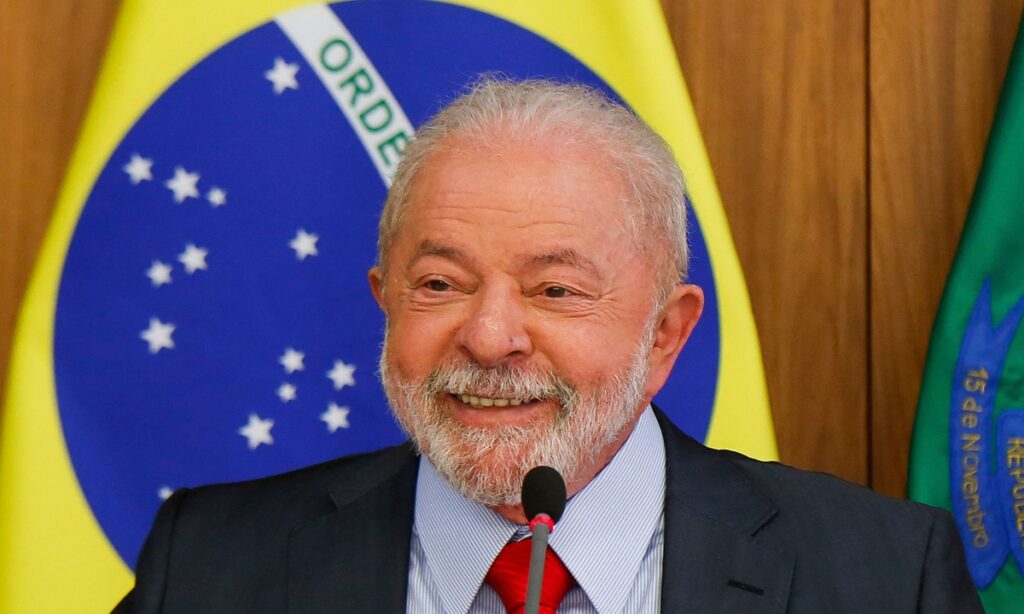More comprehensive BRI-related cooperation likely to be reached
After recovering from pneumonia, Brazilian President Luiz Inácio Lula da Silva will reportedly visit China from Tuesday to Friday, and experts said the visit will greatly raise bilateral ties to a higher level with more comprehensive cooperation in not only traditional areas like trade and investment, but also fields like finance, anti-poverty, cooperation under the frame of the Belt and Road Initiative (BRI), as well as joint mediation over the world-concerned Ukraine crisis.
Analysts from China and Brazil were surprised that the visit could be rescheduled so soon, and this proves that both the two governments have great sincerity and strong motivation to further promote their comprehensive strategic partnership, and to form new certainties with their efforts to overcome the rising uncertainties in the international arena.
Brazil is one of the few countries that is yet to join the China-proposed BRI. While answering a question about whether the upcoming visit would see China and Brazil sign an agreement for BRI cooperation, Wang Wenbin, a spokesperson of the Chinese Foreign Ministry, said on Monday that “the BRI is a completely open and transparent cooperation initiative. We are willing to work with all members of the international community, to jointly promote cooperation for construction of the Belt and Road, and to pay our efforts to promote joint development for all countries.”
Guo Cunhai, an expert in Latin American studies at the Chinese Academy of Social Sciences, told the Global Times on Monday that “if Lula’s trip can make Brazil formally join the BRI, then it means there will be 22 Latin American countries formally in the China-proposed initiative, which has great significance to show that the initiative is greatly welcomed in the continent.”
In 2022, Argentina signed a memorandum of understanding on cooperation within the framework of the BRI. If Brazil joins the initiative this time, it means that the BRI has effectively covered the major parts of South America, Guo said. “This would be symbolic.”
Apart from the BRI cooperation, the previously announced yuan clearing deal between China and Brazil is also a significant signal to the world that as two major rising economies and two BRICS countries, China and Brazil are determined to boost the post-pandemic recovery together and get rid of the uncertainties and interruptions created by the US and some of its allies, and also phase out reliance on the US dollar for international trade and investment, analysts said.
Besides, Wang said that China encourages and supports all efforts to help find a political solution for the Ukraine crisis. “We are willing to work with all members of the international community, including Brazil, to keep playing a constructive role to promote a political solution for the Ukraine crisis,” Wang said.
Lula will propose a “peace club” with China to mediate an end to the conflict in Ukraine when he visits China, the Financial Times reported on March 24, before the Brazilian president cancelled his trip last month due to the health problem.
“We are very interested in promoting or helping generate some kind of meeting that would lead to a peace process,” Mauro Vieira, Brazil’s foreign minister, told the Financial Times in an interview. “The president has said so many times he hears a lot about war but very few words about peace. He is interested in peace conversations.”
Guo said China and Brazil are both real neutral major powers with global influence that can withstand pressure to maintain independent decision-making for diplomacy, and President Lula’s idea of a “peace club” is to bring more neutral countries to cooperate on mediation, and Brazil recognized China’s constructive role in helping the political solution of the crisis, so it’s very likely to see the two sides have closer coordination and cooperation on mediation for the Ukraine crisis.
Apart from those strategic fields, the two sides are also likely to realize cooperation on green industries, agriculture and environmental protection, said experts. As China is seeking “green supply chains” to connect with other countries for agricultural trade, a Brazilian expert who is now visiting China believes that this will bring great opportunities to Brazil.
Larissa Wachholz, a senior fellow at the Brazilian Center of International Relations, told the Global Times on Monday that Brazil has a lot of technologies that lead to lower emissions of carbon dioxide that could be implemented in the agriculture sector, “so for example, low carbon agriculture is one topic that will be part of conversations between the two sides in the future.”
Wachholz, also a former special advisor on China affairs to Brazil’s Ministry of Agriculture from 2019 to 2021, said that if Chinese companies want to explore the Latin American market, they can use Brazil as a hub for production and distribution, and therefore, reduce their needs to emit carbon in maritime transportation.
(Global Times)




